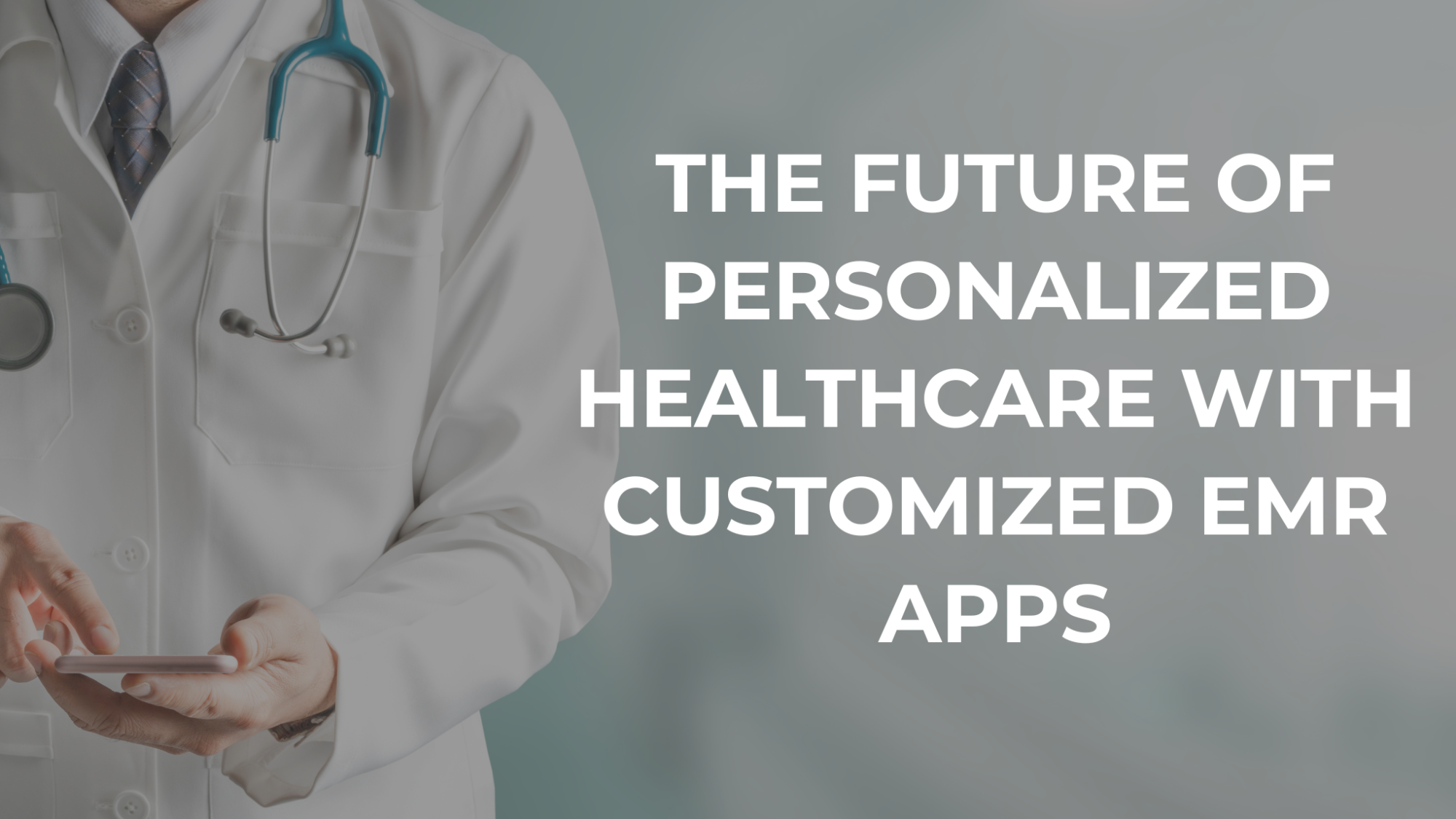The healthcare landscape is undergoing a significant transformation, driven by advancements in technology and a growing emphasis on patient-centered care. At the forefront of this change lies the rise of customized Electronic Medical Records (EMRs) apps. These innovative tools are revolutionizing the way healthcare is delivered, paving the way for a future of personalized medicine.
Beyond the Traditional EMR:
Traditional EMRs have long served as repositories for patient medical data. However, they often present a one-size-fits-all approach, failing to cater to individual needs and preferences. This can lead to:
- Information overload: Patients may be bombarded with technical terms and data they don’t fully understand.
- Limited engagement: A generic interface can hinder patient interest and active participation in healthcare decisions.
- Passive participation: The traditional EMR model often positions patients as passive recipients of information, rather than active partners in their health journey.
The Power of Customization:
Customized EMR apps bridge this gap by tailoring the user experience to individual patients. This empowers patients to:
- Access and understand their health data: Customized displays present relevant information in a clear and concise format, facilitating comprehension.
- Set personalized health goals: The app can guide patients in setting achievable goals based on their specific health conditions and aspirations.
- Track progress and make informed decisions: Visualization tools and progress tracking features allow patients to monitor their health journey and collaborate with their healthcare providers in making informed decisions.
A Glimpse into the Personalized Future:
Customized EMR apps are evolving to offer even greater levels of personalization:
- AI-powered insights: Artificial intelligence can analyze patient data and generate personalized recommendations for preventative care and treatment options.
- Integration with wearable devices: Real-time health data from wearable devices can be seamlessly integrated with the EMR app, providing a holistic view of patient health.
- Telehealth integration: Customized EMR apps can connect patients with their healthcare providers virtually, fostering communication and remote monitoring.
The Road to Personalized Medicine:
Customized EMR apps are a cornerstone of the future of personalized medicine, a future where healthcare is tailored to individual needs and patients are empowered to actively participate in their health journey.
Benefits of Personalized Healthcare:
- Improved patient outcomes: Personalized care plans and preventative measures can lead to better health outcomes.
- Enhanced patient engagement: Empowered patients are more likely to actively participate in their healthcare.
- Reduced healthcare costs: Preventative care and improved adherence to treatment plans can lead to cost savings for patients and healthcare systems.
Looking Ahead:
As technology continues to evolve, customized EMR apps will undoubtedly play an even greater role in shaping the future of healthcare. By fostering collaboration, empowering patients, and leveraging data-driven insights, these innovative tools pave the way for a more personalized and patient-centered healthcare experience.
Conclusion:
The future of healthcare is undeniably personalized. Customized EMR apps are not just a trend; they are a foundational element of this transformation. By empowering patients with accessible information, promoting active participation, and fostering collaboration with healthcare providers, these innovative tools pave the way for a more effective and patient-centered approach to healthcare.


